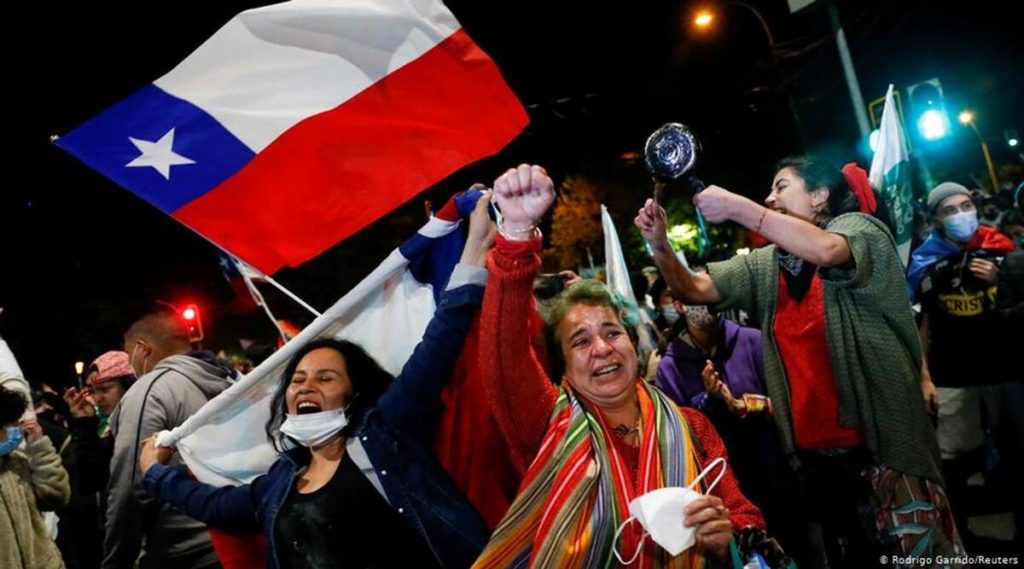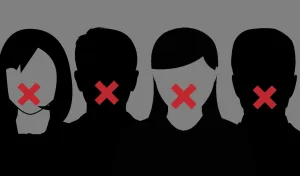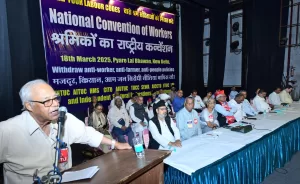Over the weekend, the people of Chile voted in a historic election to select the members of a body tasked with drafting a new Constitution to replace the one written in 1980 under the dictatorship of Augusto Pinochet.
The final tally dealt a severe blow to the followers of General Pinochet, many of whom make up the center-right and right-wing coalition Chile Vamos, backed by the current president, Sebastián Piñera, which won just 37 of the 155 seats for the Constitutional Convention. Chileans, especially the young, also rejected the traditional center-left parties as insufficiently responsive to people’s craving for a more egalitarian society and overly compromised with the status quo.
The victors were numerous independent candidates who had been active in the ongoing protests calling for reforms in education, health and pensions, and an end to the neoliberal economic model that has dominated Chile for almost half a century. The independent, left and center-left candidates secured a combined 101 seats, more than two-thirds of the Constitutional Convention. They would have enough power to propose broad economic reforms to land and water rights, the pensions system and the exploitation of natural resources. Chile is one of the most unequal countries among advanced economies.
[Editorial addition:
With 99.13% of the votes counted, the independent candidates from different social movements, trade unions and other popular organizations, who emerged during the social uprising of October 2019, won 48 seats. The “I Approve Dignity” list, made up of left-wing political parties such as Communist Party of Chile, the Broad Front, among other anti-neoliberal parties, won 28 seats. The “Approval” list, consisting of center-left, socially democratic parties secured 25 seats. The “Let’s go for Chile” (Chile Vamos) list, a coalition of right-wing parties including the ruling alliance, obtained 37 seats. The results for the 17 seats reserved for Indigenous communities in the Constitutional Convention will be shared separately later this week.
Along with these elections, regional and municipal elections were held to elect 16 regional governors, 345 mayors and 2,240 municipal councilors for the period 2021-2025. Although the final results of these elections will not be known until the end of the week, the preliminary results indicate a similar blow to the governing coalition, which lost important mayors offices and regional governments. Meanwhile, the left-wing parties retained their municipalities and gained several others across the country, including in the capital Santiago.
According to preliminary results, Rodrigo Mundaca, a prominent social leader and human rights defender, is poised to be the governor of the region of Valparaíso, the second most important region in the country. Similarly, Jorge Sharp of the Broad Front seems to be re-elected as the mayor of Valparaíso, while Macarena Ripamonti of the Broad Front is leading to become the mayor of Viña del Mar, traditionally dominated by the right-wing, and Daniel Jadue of the Communist Party seems to be re-elected as the mayor of Recoleta.
Extract, taken from Tanya Wadhwa, “Progressive Forces Win Majority of Seats in Chile’s Constitutional Convention”, Courtesy: People’s Dispatch.]
All signs indicate that the foundational document they will draft will enshrine principles of civic participation, justice, gender equality and Indigenous rights that have long eluded this South American nation.
The election results represent a stunning outcome that nobody could have predicted when a huge protest movement rocked the conservative government of Mr. Piñera in October 2019.
As the 2019 uprising grew larger and more adamant, there was one major demand that united its heterogeneous participants: the need to replace the Constitution that had been fraudulently approved during General Pinochet’s lethal dictatorship — a need that responded to a deeper existential crisis over inequality in Chilean society that had been brewing for decades.
Even after Pinochet was forced to retire as president in 1990, his Constitution continued to be a straitjacket that allowed a minority of right-wing legislators and an entrenched oligarchy to constrain radical attempts to create a more equitable and less repressive society.
The October 2019 revolt terrified the ruling coalition of conservative politicians, and they reached an agreement with center-left parties holding a majority in Congress to call a referendum asking the nation whether it wanted a new Constitution. It was a way, they thought, of saving the country’s institutions and guaranteeing a peaceful outcome to popular demands.
To make certain that they would wield a veto over the proceedings, many of General Pinochet’s followers in the Senate and Congress wrote into the agreement that the final document produced by the Constitutional Convention would have to be approved by a two-thirds majority. They did so confident in their calculations that they would always be able to command more than one-third of the delegates.
That calculation backfired spectacularly over the past weekend as Chile Vamos, despite an enormous financial advantage, lost badly to independent and opposition candidates, and was sidelined from decision-making when it comes to the new charter. The defeat is all the more striking because the coalition also lost most of the mayor’s and governor’s races that were being held simultaneously.
The presence of the anti-establishment composition of the body that will write the new Constitution ensures there will be a series of drastic alterations in the way Chile dreams of its future. Two provisions already exist in the electoral process.
One stipulates that gender parity be achieved in the apportionment of the 155 delegates, so that women will not be greatly outnumbered by men in the halls of power. A majority of the 77 women elected, along with their male allies, can now fight successfully for reproductive rights in a country where abortion has traditionally been restricted and criminalized.
The other provision reserves 17 of the seats at the convention for Indigenous peoples, who form 9 percent of Chile’s 19 million people. Chile can henceforth proclaim itself a plurinational, multilingual republic. It is a historic triumph for the original inhabitants of that land like the Mapuche, who have faced oppression since the Spanish conquest in the 16th century. The conflicts with the Mapuche, especially over ancestral land rights, have recently led to a series of often violent skirmishes in the south of the country.
Other reforms seem likely: reining in police violence; a reformulation of economic and social rights that reduces the dominance of an obscenely rich elite; increased protection of the environment; the rooting out of endemic corruption; and the end of discrimination against L.G.B.T.Q. people.
Just as crucial is the vigorous national conversation that will ensue, open to the citizenry and attentive to the input from those who spearheaded the revolt. A return to a Chile where the profits of the few mattered more than the well-being of the many will not be acceptable.
There are, however, some disquieting signals ahead. Only 43 percent of the population voted in this election, compared with the more than 50 percent who turned out last year and overwhelmingly approved the idea of creating a new Constitution.
This absenteeism can be partly attributed to the pandemic (which also stopped me and my wife from traveling to Chile to cast our votes) and partly to the widespread apathy of vast sectors of the electorate, particularly among the poorest families. Finding ways of enthusing those who do not trust that any change will ever benefit them is a challenge that must be met.
The other problem is that though nearly 75 percent of the delegates embody a progressive agenda, they are fragmented and tend to squabble among themselves, making it difficult to reach a consensus on how far to carry out the reforms Chile requires.
None of this detracts from the encouraging message and example that Chile sends out to the world at a time of rising authoritarianism: As humanity faces a terrible existential crisis of its own, what we need is not less democracy but more democracy, more participation, more of us daring to believe that another world is possible.
(Courtesy: New York Times.)
❈ ❈ ❈
Chile: Two Women Symbolize Historical Progressive Victory
Courtesy: Telesur
The first elections held in Chile since the massive social uprising of 2019, confirmed last weekend that demand for radical change of the country’s institutional, social and economic rules is deeply rooted and had not been tamed by brutal repression and the pandemic, as many -especially the traditional political establishment – had wrongly assumed.
Such fatal miscalculation made them act as if nothing had happened and people would obediently return to choose their representativea among the roster of same old guys who have ruled Chile since the end of Augusto Pinochet’s dictatorship in 1990.
The dictator had left behind a Constitution and a neoliberal framework nobody wished, or dared to touch… until now. In last week’s elections, Chilean voters picked regional governors, mayors, city councils and, most important, a Constitutional Convention in charge of drafting a new Charter for the country.
“The most important political event of these elections, in my opinion, is the communist victory in the municipality of Santiago, the heart of the Republic. A young woman of 30, Irací Hassler Jacob, an economist, is the first communist mayor of the former bastion of conservatism,” writes Manuel Cabieses, a respected left-wing political analyst.
“The recognition of feminism as an essential factor in society will also be assured if the new Constitution proclaims the equal participation of women in all civilian and military bodies of the Republic”, he says.
“It is not that the electorate of Santiago -made up of middle classes- has become communist. In the Constitutional Convention the CP reached only 4%. What is happening is that former rivals of the CP in the Left and thousands of fearful centrists, have joined the communist candidate unconditionally and without any qualms.”
Hassler, a former student leader and Santiago city council member for the past four years, became mayoral candidate at primary elections held by left-wing movements and social organizations. She defeated incumbent Gustavo Alessandri, heir of a traditional conservative family closely intertwined with the country’s political life. Two Alessandri, father and son, held the post of President in the 20th century.
A Mapuche spiritual leader
On the other hand, writes political commentator and academician Gustavo González, “perhaps no one symbolizes like Francisca Linconao the change that is beginning to open up in Chile after the elections of May 15 and 16.”
“Machi Francisca Linconao is 62 years old and was in 2009 the first indigenous woman in Chile to win a lawsuit based on Convention 169 of the International Labor Organization against illegal logging on the edge of her community, later, between 2016 and 2018, she was unjustly imprisoned in a trial for the murder of a couple of large landowners. Now she will integrate the Constitutional Convention with an endorsement of more than 80 percent in the election of seats reserved for native peoples,” González adds.
According to Cabieses, “Mestizo Chile, for example, will cease to be a social stigma. We will finally have a plurinational State where the roots of European conquerors and settlers will be twinned -at least in the Constitution- with the native peoples: Mapuche, Aymara, Kawésquar, Rapa Nui, Yagán, Quechua, Atacameño, Diaguita, Colla and Chango. A hodgepodge of peoples that make up the Chilean nation.”
Both writers underline the emergence of independent delegates to the Constitutional Convention -48 out of 155.
“In Chile’s diverse ideological landscape, it is undeniable that the Convention will be dominated by the left, which will include both the constituents of the PC-FA alliance and an absolutely majority percentage of the 48 independents, whose lists emerged from social movements, neighborhood assemblies, unions, feminist and environmental groups.




